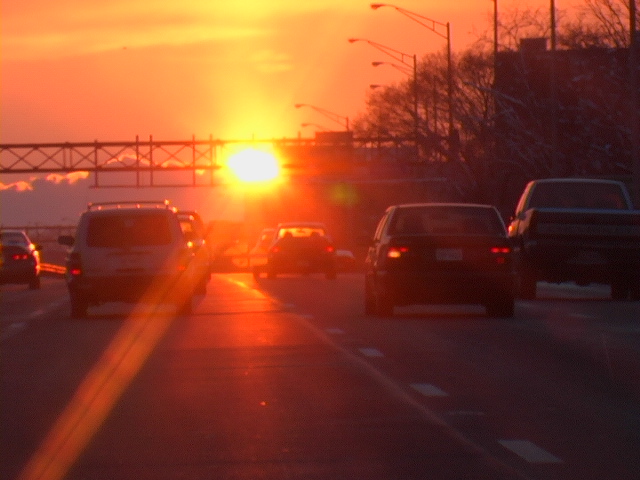 We all want to scream about the miseries of high gas prices. But, are there any “silver linings” in which we can find solace?
We all want to scream about the miseries of high gas prices. But, are there any “silver linings” in which we can find solace?
Instead of feeling totally stressed at the pump, think about the positive aspects of high gas prices — the five ways that life is already improving thanks to $138-per-barrel oil.
Maybe you wouldn’t choose these improvements over a savings of two bucks per gallon, but they’re worth dwelling on if depression and anger regularly sour your mood at the pump. This small bit of peace and satisfaction actually provides some relief as you drive away, $75.00 less in your pocket.
[This is a reprise of an article published June 19, 2008, when gas prices in the U.S. spiked to an all-time high, and these trends started gaining momentum.]
1) Global Warming is Slowed – Cars are a major contributor to Global Warming, and we will see a reduction of CO2 as people consciously make smart choices to consolidate errands and start car pools. (Remember that rising seawater from melting glaciers will drastically change some of our favorite shorelines around the world.)
2) Our Health is Improved – Instead of circling the mall to find a closer parking spot, you may walk the distance. More people may be exercising, riding their bikes rather than turning the key in the ignition.
4) Money Will Flow to Bio-Ethanol, Turning Algae, Fryer Oil, and Garbage into Fuel for Cars – There are already companies doing this. All we need is a major public tantrum to focus R&D dollars into mega-plants for producing bio-fuel from unending sources like used cooking oil, algae, trash or manure.
5) People are Moving Closer to Town Giving Urban Areas a Needed Boost – From March 2007 to March 2008 driving has decreased by 11 billion miles overall mostly due to gas prices. More people are weighing transportation costs when they decide where to live, which is giving urban areas a needed boost. Mass transit systems have experienced a dramatic boost in ridership, which is good news for the environment. Housing choices are changing giving a shot in the arm to neighborhoods that need it.
Mass transit, energy alternatives, vehicle efficiency and changing driving habits are all interwoven, says Rob Puentes, of the Brookings Institute. “The good news is that Infrastructure and transportation has been elevated to a national level and now there’s no way that congress can avoid a substanative conversation on these issues (like they have in past years)… The conversation has already begun.”
Take some of the stress off your next visit to the pump by remembering these precious silver linings. (Count 6 silver linings if your family includes pesky relatives that will not visit your home as often!)
FOR GNN SUBSCRIBERS: Read the 7 comments by GNN members under the original 2008 article, and notice the thoughtful nature of our super-aware readers!



















